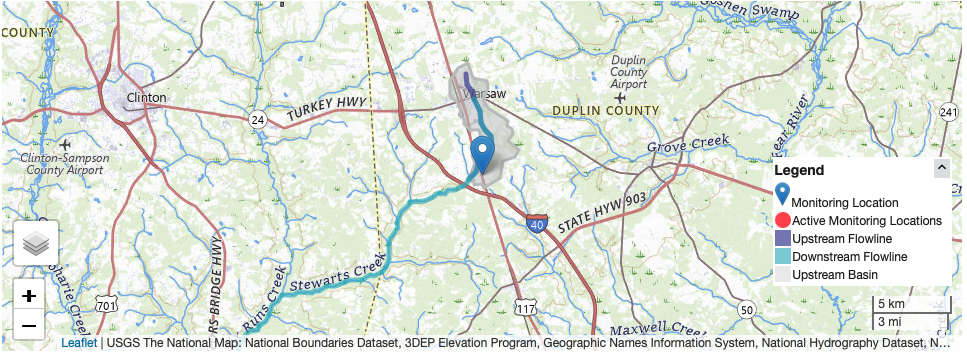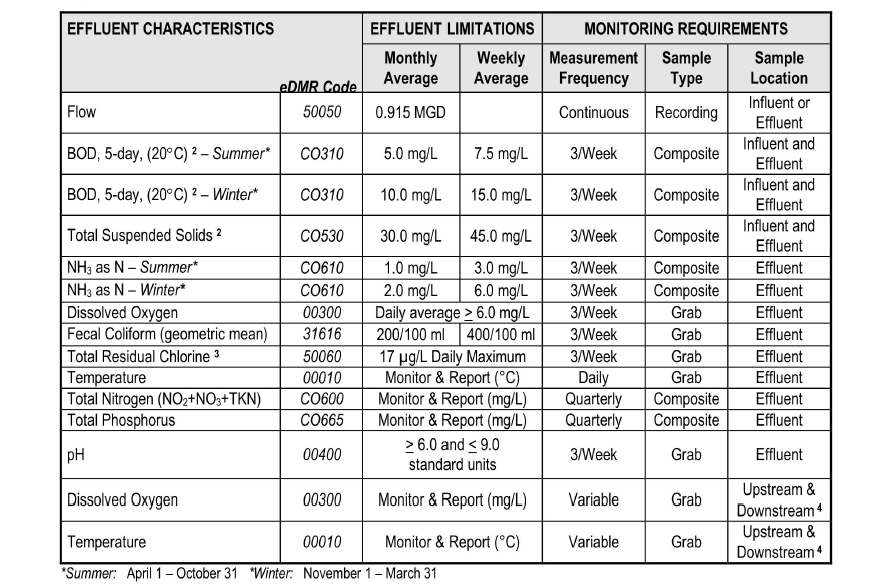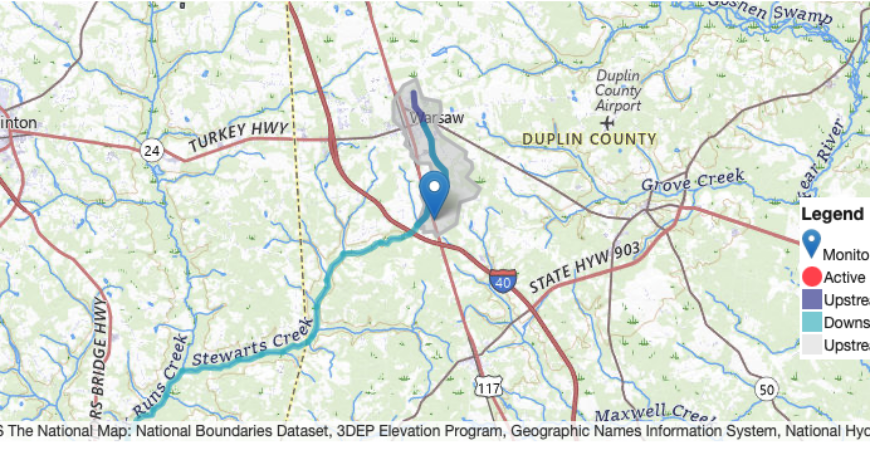Warsaw’s overburdened wastewater treatment plant has been a significant topic of concern for area residents and leadership. According to Warsaw Mayor A.J. Connors, the town needs approximately $44 million to expand the wastewater treatment plant infrastructure needed to keep up with the town’s growth.
The WWTP provides treatment for a service population of approximately 3,120 people. The facility discharges wastewater to Stewarts Creek in the Cape Fear River subbasin.
This year, the town was fined $33,243.51 for violating discharge limitations and monitoring requirements set by the North Carolina Department of Environmental Quality.

Last month, the town received a notice of violation for exceeding the levels of Coliform, Fecal MF, and MFC Broth, more than three times the limit in June. In May, the town had to pay a fine of $12,323.51 for violations in February, and in April, a $20,920 fine for 14 violations in January.
According to the May civil penalty assessment, while it is understood that costs were incurred to resolve the upset impacts caused at the WWTP since 2023, “it seems that actions may have been delayed by the possible continued use of disinfectant agents at a nearby production facility that impacted wastewater treatment operations.”
The assessment notes that the WWTP facility has a concerning track record with three previous enforcement actions for some of the same parameters in the preceding 12-month period.
In April, the assessment noted that while the Wilmington Regional Office was notified, “it seems that no further actions have been taken to prevent the violations that have occurred since June 2023.”
According to a report from the Division of Water Resources issued to Warsaw, the extent of harm to the state’s natural resources and public health has not been quantified. However, the winter Instream Waste Concentration (IWC) was estimated at 86.6% above the allowed. In February, the facility exceeded the weekly Biochemical Oxygen Demand (BOD) by 2347% and the monthly average by 1007%. The higher the BOD, the less oxygen is available for aquatic life. The wastewater plant also exceeded a weekly fecal coliform by 505%.

While the effect on surface water quality has not been evaluated, according to the most recent Discharge Monitoring Report readings obtained by Duplin Journal, many fecal coliform readings show 2,420 bacteria per 100ml. Also, there was a spike in ammonia levels during August, which reached 12 mg/L — four times the limit.
Connors told Duplin Journal that the town’s engineers are working on solutions to help mitigate the problem.
“It’s just taking more time than what we thought it would take,” said Connors, adding that the $7.5 million grant they received to help with the expansion is being allocated as engineers devise a plan to use it. “It’s not enough money to expand in the fashion that is needed,” he explained. “Things will be fine if they just be patient for a little while. Nobody’s losing anything.”
Commissioner Ebony Wills-Wells declared in a social media post that the town monitors two industrial users for their harmful discharges into the wastewater treatment plant.
“These industrial users should have been mandated to have pretreatment programs in place but haven’t,” wrote Wills-Wells. She explained that this ongoing issue has been damaging to the community and the environment and is affecting those downstream. “To be transparent, this has not just started, but has been going on for many, many years due to lack of enforcement in the Town of Warsaw. Citizens were informed that there are some legal issues in process and the town is working to enforce state rules and regulations to try and fix the problems.”
However, these are only some of Warsaw’s problems involving the plant. The town is also considering a moratorium on new sewer lines until improvements are made to the treatment facility.
Connors told Duplin Journal that they have yet to officially implement a moratorium and are evaluating each situation as it arises. He asks business owners for their patience while they work through these matters.
“We’re not trying to brush people off. It’s just the fact that there are certain rules and regulations in place. We have to honor those, or else we get in trouble,” said Connors. “We do our best with what we have in front of us, and that’s what we do. And not everybody’s happy because some people just don’t understand the rules and regulations.”
Cecil Lennon, a Warsaw resident and small business owner who builds homes to rent, expressed his frustration with how things are handled in the town.
Lennon told Duplin Journal that he applied for two permits and received both. Still, with the new restrictions, he won’t be allowed to connect to the sewer after he has invested more than $80,000 in his project.
“If you know that you’re going to enforce a moratorium, why would you wait until I pay for my permit and it’s issued and then put it on hold? That’s not fair,” said Lennon. “I have two projects going that I already paid for. But I can’t tie into the sewer once I finish my projects.”
Issues with the wastewater treatment plant could potentially hinder the town’s growth. While plans for a subdivision with 62 new homes have been approved, the plant currently lacks the capacity for the increased wastewater load.
According to town documents, in an email from Cecil Madden of McDavid Associates, Madden shared her professional opinion that the state likely will not approve additional sewer extensions until the wastewater treatment plant meets its effluent limits and can satisfactorily handle the increased wastewater load a subdivision would bring.
“We do not anticipate this will be resolved very soon. If subdivisions have been approved, the owners should be advised that the sewer lines will require a NC Division of Water Resources permit that the State may not approve at this time because the Town’s WWTP does not currently have the treatment capacity,” stated Madden.
 Twitter
Twitter Facebook
Facebook Instagram
Instagram



